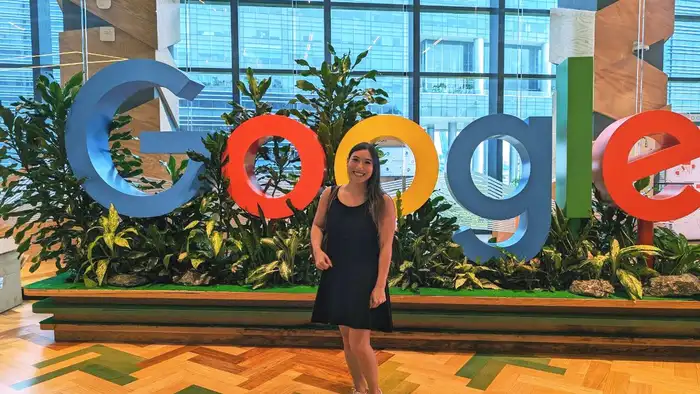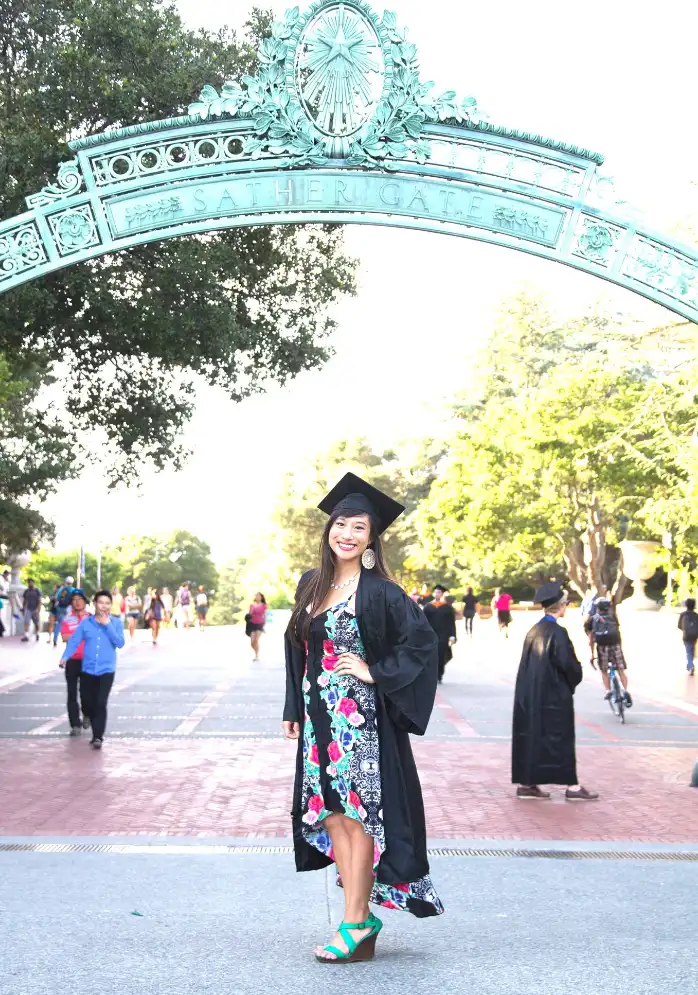A day in the life of an American startup founder in Singapore who juggles timezones, 8 employees, and WhatsApp chats with hundreds of customers

Sherry Jiang is the founder of the personal finance platform Peek.
When Sherry Jiang quit her job at Google to pursue a more entrepreneurial career, she left a consistent paycheck. She also walked away from a consistent schedule.
As a startup founder, no day is exactly the same.
On a Thursday night at 11:30 p.m. SGT, the Singapore-based entrepreneur could find herself talking to a B-17 reporter about her investments — which is exactly what happened in August 2024 when she scheduled a WhatsApp phone call with me.
It prompted the reporter — based on the West Coast, where it was a much more reasonable hour of 8:30 a.m. — to ask: What did the previous 12 hours of your day look like?
Here’s what she told me.
It was a Thursday, so Jiang had commuted to the office that morning.
“We have a hybrid work structure. We go to the office Tuesday and Thursday,” she explained. “It works out pretty well for the team because you save time on the commute, but we still get time in person.”
Jiang is the cofounder and CEO of Peek, a personal finance platform that tracks your net worth. It launched in early 2024 and she leads a team of eight employees.

Jiang left Google in 2021 to pursue a more entrepreneurial career.
Before firing up her laptop, she makes time for the gym. This is a relatively new part of her daily routine, and something she used to think was “impossible” to make time for as a startup founder. However, signing up for a fitness competition with her friends in 2024 “forced me to train for it,” said Jiang. “And it actually made me realize I could wake up at 7, squeeze in a workout before work, and hit my computer at 9:30.”
She said it helps that her gym is within walking distance of her apartment, so she “really doesn’t have an excuse.”
The 32-year-old hasn’t always prioritized things like sleep and exercise.
“In college, I had the mentality of, ‘I can sleep when I’m dead,'” said Jiang, noting that the book “Why We Sleep” eventually helped change her mentality.
She’s not completely immune to feeling “founder guilt” when she’s not working, but recognizes the importance, if not necessity, of taking care of her mind and body.
“The happier I am, the more creative I am, and the more enthusiastic I can be when I talk to people on my team and customers,” said Jiang, who may have once subscribed to the habits of the early 2000s Silicon Vally founder who was glamorized for working 100-hour weeks and subsisting on ramen. “I think it’s changed, and I think it’s good that it’s changed. We shouldn’t be a shell of a human because we’re running these companies. In fact, we need to take care of ourselves because it’s a marathon and not a sprint.”
Plus, “as much as a startup is important to me and a big part of my identity, I’m more than just my company,” she said.
A typical day: Communicating with customers, paring down meetings, and saving admin for the evening
A chunk of Jiang’s day consists of interacting with Peek customers via WhatsApp chat. That way, “it’s less formal,” she said. “I try to create this space where the users feel like they can tell me about anything related to the product and I get feedback really quickly.”
She has active chats with hundreds of users and is responding to up to 50 messages a day.
“It’s a bit insane,” she admitted. “But you really learn so much about your customers — when they’re disappointed, when they feel successful — and to me, that’s more important than anything.”
The majority, about 85%, of her customers are based in Asia, but about 15% are US-based. She sets aside one day a week to catch up with her US-based customers, who are anywhere from 12 to 15 hours behind Singapore. Having worked on a globally distributed team at Google, Jiang is used to juggling time zone differences and taking early-morning or late-night calls.
“I’ve been doing this since 2016,” she said, adding: “There are ways to protect your time.”
She likes to carve out time for herself between 6 p.m. and 8 p.m. to go out for dinner or do something not related to work, “so as long as a call happens after that, I still get my protected time,” she said.

Jiang graduated from UC Berkeley in 2014. Her first job was at Amazon.
Jiang also dedicates a portion of her day to posting on LinkedIn, where she’s built a network of more than 18,000 followers.
“That’s actually how I get a lot of my leads, through my socials, so I post every day,” she said.
On this particular Thursday in August, she spent some time prepping for a team meeting that focused on onboarding: how to get people to sign up for the app and, ultimately, subscribe to it.
“We’re not having meetings for the sake of meetings,” said Jiang. “We do try to optimize our time together in person, and deep dive into problems that are more efficiently solved when we’re in person.”
In general, she says she has “way fewer meetings” as a startup founder than she did in the corporate world. “The problem-solving per hour I have is a lot higher in a startup environment because I’m spending less time on coordination and admin. It’s a lot more of just rolling your sleeves up and executing, versus spending time thinking about what to do.”
She works late most weeknights. After her 6 to 8 p.m. break, she spends the evenings doing administrative tasks, answering emails, and catching up on LinkedIn.
“This works for me but I think everybody has a different way they structure their weeks,” said Jiang.
Setting boundaries: ‘Date night’ on Thursdays and no-work Saturdays
It can be hard to feel like she’s ever off the clock.
“I have to remind myself that with your own startup, the work never ends,” said Jiang. “So you have to create the boundaries yourself; you can’t just let the boundaries happen based on the work that is always going to come.”
In a way, it’s “inevitable” to carry your startup with you wherever you go, she said. “But I also think there is a balance: It’s OK to have the gears be grinding but you also have to be super deliberate about setting aside time to not think about it.”
For that reason, Jiang protects her Saturdays. Unless there’s a special circumstance, like fundraising for the company, “I do not work on Friday nights, and I really try not to work on Saturdays, so I have that 24 hours where I’m just doing something else.
She doesn’t mind working on Sundays.
“I like having that time to do deep work and think about solving problems. I don’t have the space to do it during the week because I’m getting bombarded with a ton of things in all different directions,” she said. “It’s fun work in a way — things that are intellectually stimulating. I get to sit down and think about it for hours, and I’m not uninterrupted by other things happening.”
Jiang and her partner, who is also a startup founder, also block out one night a week — Thursday — to set work aside and “just hang out,” she said. “The rule is we can talk about anything but work.”
There appears to be at least one exception to the Thursday date night rule: Talking to a B-17 reporter.






